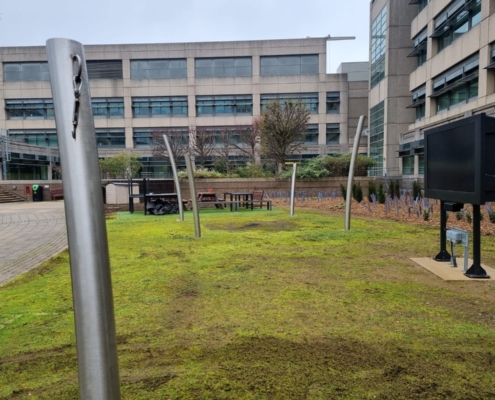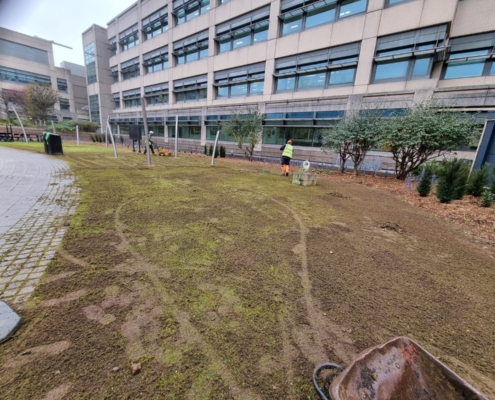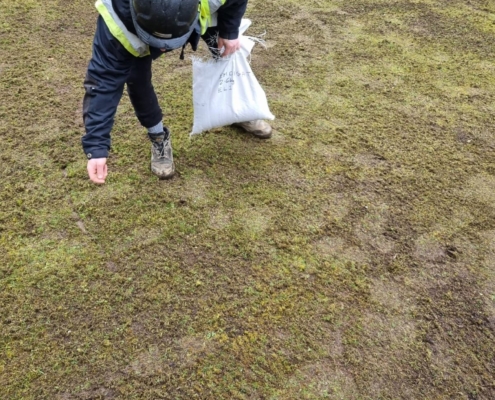Grasslands to meet Biodiversity Net Gain Targets
Biodiversity net gain is an important concept for businesses operating in the UK to consider. As companies increasingly seek to minimize their environmental impact and promote sustainability, biodiversity net gain can provide a framework for achieving these goals.
To meet BNG targets in the UK, businesses can take several steps, including:
- Conducting biodiversity assessments: Before starting any new development or construction project, businesses should conduct a biodiversity assessment to identify the potential impacts of their activities on local ecosystems and species. This can help to inform decisions about where and how to develop, and identify opportunities to enhance biodiversity.
- Implementing green infrastructure: Businesses can incorporate green infrastructure into their developments, such as green roofs, green walls, and urban gardens. This can help to provide habitat for wildlife, improve air and water quality, and enhance the overall aesthetic of the development.
- Enhancing existing habitats: If a business’s development activities impact existing habitats, they should take steps to mitigate these impacts by enhancing or creating new habitats elsewhere. For example, businesses can plant native species, create ponds or wetlands, and restore degraded ecosystems.
- Supporting local conservation efforts: Businesses can support local conservation efforts by donating to environmental charities, sponsoring wildlife surveys or habitat restoration projects, or volunteering time to help with conservation activities.
Shown here is the installation of a mixed grassland scheme for leading pharmaceutical company GlaxoSmithKline
The DB Landscape Management team were subcontracted by Scotscape to project manage this detailed work, which forms part of a broader scheme for this leading company to increase their biodiversity footprint by 25% by 2030.
By Implementing these measures, businesses can make a significant contribution to achieving biodiversity net gain targets in the UK. This not only benefits local ecosystems and species, but can also enhance a company’s reputation and demonstrate their commitment to sustainability and responsible environmental stewardship.











